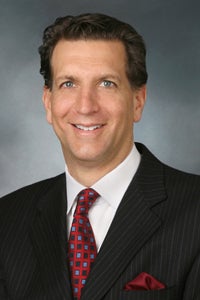What must lawyers know about litigation and public affairs communications in the global marketplace? Richard S. Levick, lawyer, president and CEO of Levick Strategic Communications, addressed this question in an event organized by the Institute for Global Law and Policy at Harvard Law School on Oct. 13.
Levick, whose company works closely with clients and lawyers to communicate strategically, said winning in court does not always mean winning in the court of public opinion. Lawyers often forget how much the public image of their client can affect the client’s success.
“The person who controls communication, controls negative effects on his/her client,” said Levick. “Communication is one of the fundamental tools to advise a client.”
Levick’s firm has worked on a number of high-profile cases, including cases on behalf of Guantanamo Bay detainees. After 9/11 the public generally approved of Guantanamo Bay detentions, said Levick. His company started a campaign to focus public opinion on due process for detainees. “We were successful as we were careful about picturing the detainees as normal people instead of terrorists,” he said. “The campaign was not about terrorist versus non-terrorist, it was just about the United States as a democratic country that shall guarantee due process. We succeeded, and in two years public opinion changed on the Guantanamo Bay issues.”
During his talk, Levick gave examples of two companies that did not successfully handle public opinion in crisis situations: British Petroleum and American International Group.
According to Levick, a public communications company has to research the media environment, the culture, and the political situation of the interested country in order to come up with an effective strategy to influence public opinion. But the job is not all about impressing the public, said Levick. “Doing the right thing is often what wins. We advise our clients to fix their problems.”
